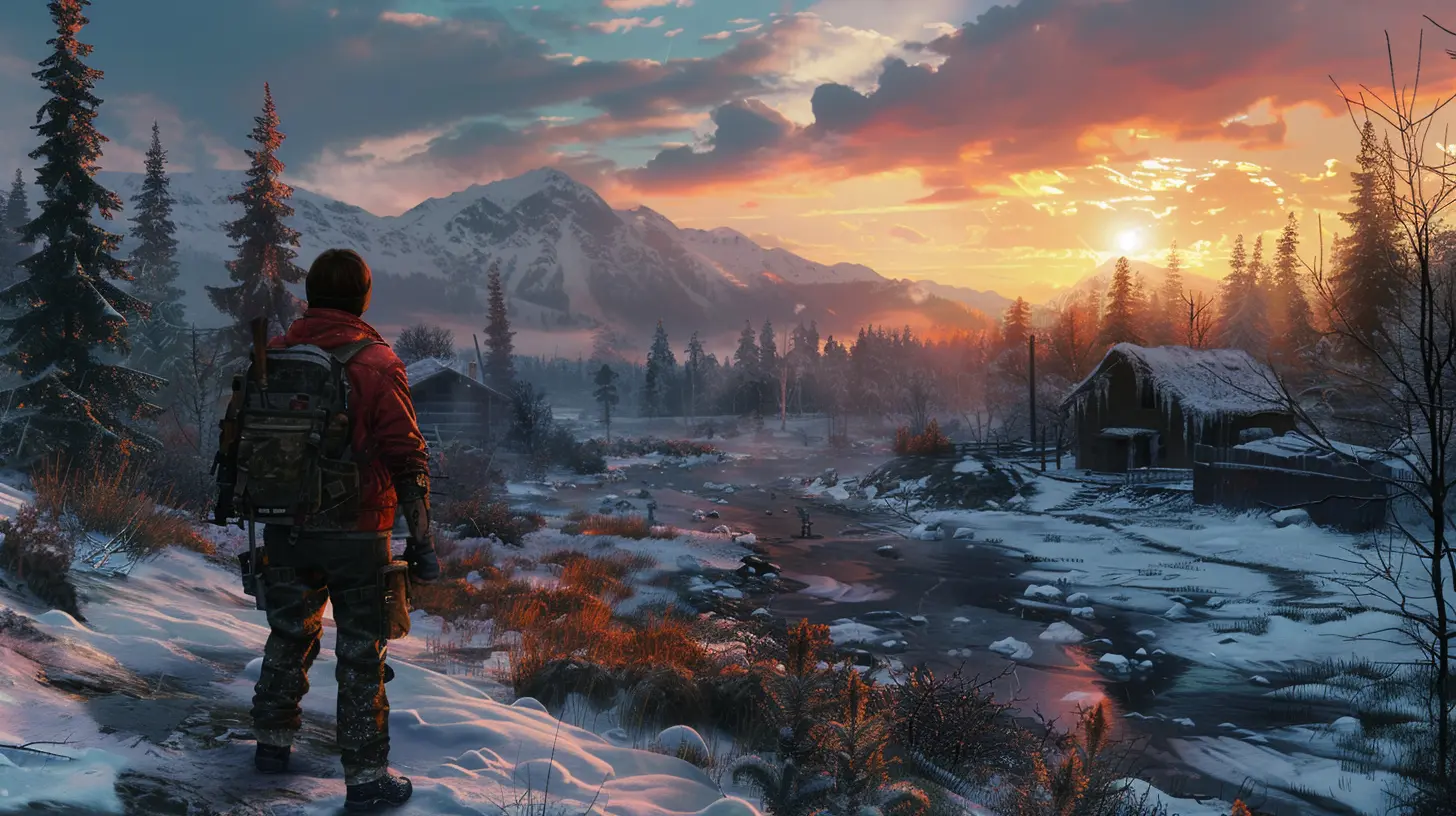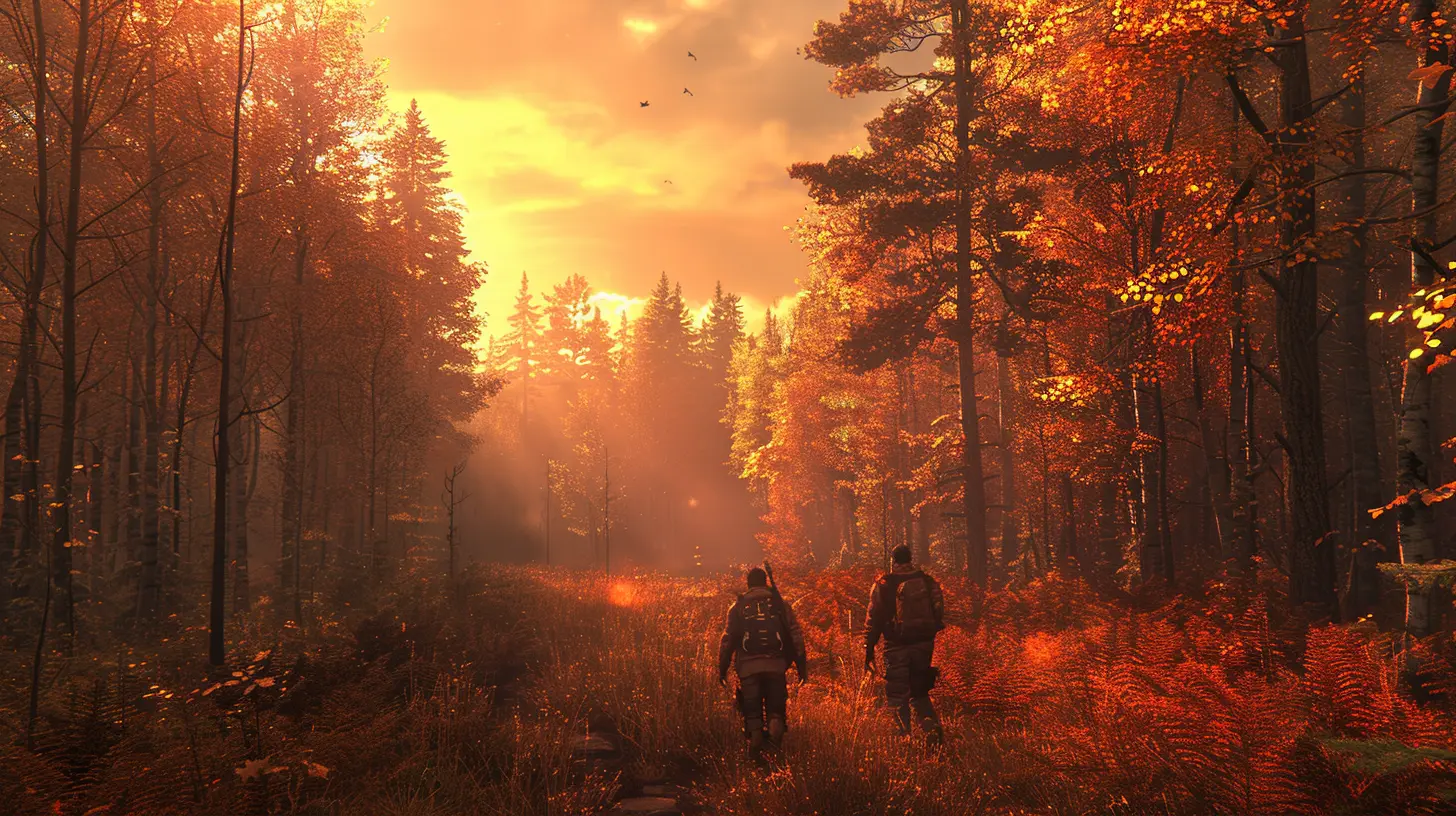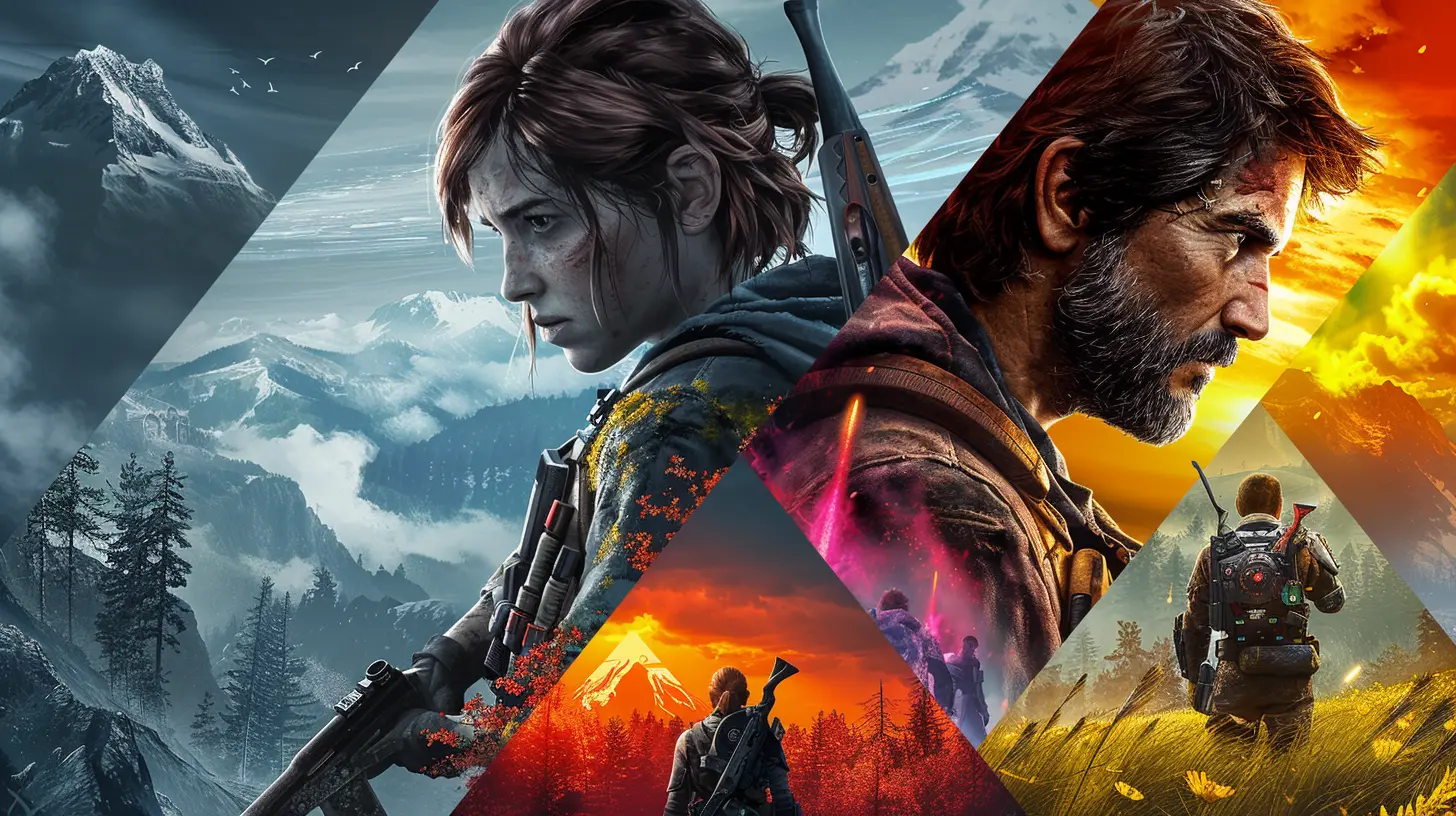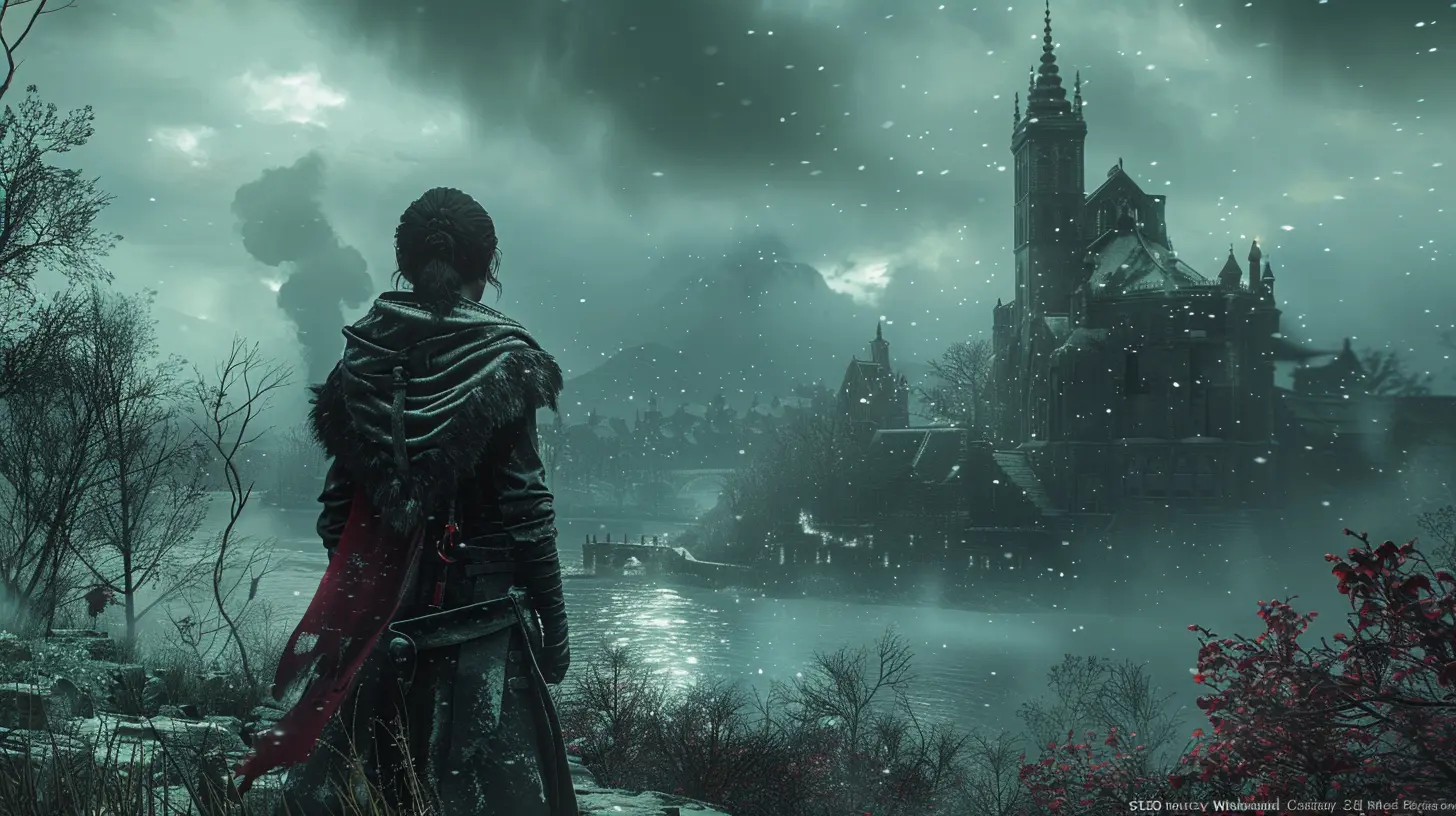Are Season Passes Reinventing the Way We Experience DLC?
21 June 2025
Let’s take a minute to think back to the early days of gaming. Back then, if you wanted more content after finishing a game, you either waited for a sequel or hoped for an expansion pack that dropped months (or even years) later. Fast forward to today, and things look wildly different. Now, we’ve got downloadable content (DLC) arriving in bite-sized chunks, and more recently, the rise of something called a "Season Pass."
But what exactly are season passes doing to change the way we experience games—and more specifically, our relationship with DLC? Are they turning us into loyal fans or just making us pay upfront for content we haven’t even seen yet?
Buckle in, because we’re diving headfirst into the world of season passes, and trust me, there’s a lot more going on than you might think.
What Are Season Passes, Really?
Alright, so let’s break it down. A season pass is basically a prepaid package for downloadable content (DLC) that a game developer plans to release over time. Instead of buying each DLC separately, you fork over the cash upfront and get all the upcoming content as it drops—usually at a slight discount compared to buying each piece individually.Think of it like subscribing to your favorite streaming service. You don’t know exactly what shows or movies are coming next month, but you trust the service enough to pay ahead.
Games like Call of Duty, Assassin’s Creed, and Fortnite have leaned heavily into this model. And for better or worse, it’s becoming the new norm.
The Old Way vs. The New Way
Before season passes came along, DLC was more of a “take it or leave it” situation. Developers would release an expansion pack or a downloadable chapter, and you’d decide if it was worth the price. You paid for what you wanted, no strings attached.Now, with season passes, it’s kind of like buying a mystery box. You're committing to content before it's even made public. Sure, you usually get some kind of roadmap or teaser, but the full details? Often, they’re still under wraps.
So the big question is—does this approach enhance the gaming experience or just monetize our anticipation?
Season Passes: The Good Stuff
Let’s be fair—season passes aren’t all bad. In fact, there are some solid reasons why they’ve gained so much popularity among both developers and gamers.1. Continuous Engagement
One of the coolest things about season passes is how they keep you coming back. Instead of finishing a game and moving on, you know more content is around the corner. It’s like having new episodes of your favorite show every few weeks.Games like Destiny 2 and Rainbow Six Siege thrive on this model. With each new season, players get fresh objectives, maps, weapons, and sometimes even major story developments.
Talk about replay value.
2. Better Deal (Most of the Time)
From a purely financial perspective, season passes often save you money. If you’re already planning to buy all the DLC anyway, bundling it in a season pass usually means you get a discount.Let’s say each DLC costs $10 individually, and there are 5 in total. That’s $50. But the season pass might cost $35 or $40. That’s an easy win for your wallet… assuming the content delivers.
3. Supports Developers Long-Term
This one’s a little more behind-the-scenes. When you buy a season pass, it gives developers a bit of financial breathing room. It’s an advance, in a way. That means they can afford to create higher-quality DLC, invest in server upkeep, or even roll out new features.If you love a particular game and want to see it thrive, buying a season pass can feel like tossing a coin in their tip jar—only you're getting something back later.
But Let’s Talk About The Downsides
Of course, it’s not all sunshine and bonus maps. There are some real concerns here, and we’ve got to face them head-on.1. Paying for the Unknown
This is probably the biggest gripe. You’re paying money now for content that hasn’t even been fully revealed—or in some cases, developed. What if it’s not what you were hoping for?It’s like buying concert tickets to a band that hasn’t even formed yet. Wild, right?
2. FOMO and Psychological Triggers
Game devs know what they’re doing. By offering limited-time season passes or exclusive rewards, they tap into our fear of missing out (FOMO). You feel pressured to buy now so you don’t miss that exclusive skin, emblem, or story mission.Is it clever marketing? Absolutely. Is it a bit manipulative? Yeah, kinda.
3. Splitting the Community
This one’s a little more technical—but stick with me. When not everyone buys a season pass, it can split the player base. Some people have access to new maps or modes, while others get left behind. It can mess with matchmaking and create an uneven playing field.Games like Battlefield have struggled with this in the past, and it’s something that’s tough to balance.
Are Season Passes Killing Traditional DLC?
That’s a heavy question, but it’s worth asking. The answer? Not totally—at least, not yet.Traditional DLC still exists, especially in smaller or indie games. But season passes have become the preferred model for AAA studios, mostly because of the recurring revenue and long-term player engagement.
In many ways, it’s similar to how TV has shifted from buying single episodes to binge-watching entire seasons on Netflix. The delivery method changes, but the content? Still storytelling, still entertainment.
The Rise of Live-Service Gaming
A big reason why season passes have exploded is because of live-service games. These are the ones that constantly evolve—Fortnite, Apex Legends, Genshin Impact, and the like.These games aren’t about a single playthrough. They’re designed to grow, shift, and adapt based on what the community wants (and what keeps them coming back).
Season passes fit perfectly here. They provide a structured way to drop new content, reward loyalty, and keep the player base active. The line between DLC and ongoing service has blurred into a continuous experience.
Alternatives to Season Passes
Not feeling the season pass model? You’re not alone. The good news is, there are some alternatives starting to gain traction.1. Free Updates with Cosmetic Monetization
Games like Warframe or Path of Exile offer massive content updates completely free. Instead of charging for gameplay, they sell cosmetic items, skins, or convenience features.It’s not everyone’s cup of tea, but for many players, it's a more transparent model.
2. Battle Passes
Similar names, but very different purpose. A battle pass is generally tied to a game’s competitive or seasonal structure. You play matches, level up a pass, and earn rewards.They’re often cheaper than season passes, but focused more on cosmetic items rather than story or gameplay DLC.
3. A La Carte Content
Some studios are returning to simple, standalone DLC. Pay when you want, for what you want. It’s clean, it’s direct, and it avoids all the mystery-box baggage.Are Season Passes Worth It?
Here’s where it all comes together—and the truth is, it really depends on you.If you’re a die-hard fan of a certain game, love ongoing content, and trust the dev team, a season pass can be a great investment. It keeps the hype alive and gives you a steady trickle of experiences to look forward to.
But if you’re skeptical, worried about wasting money, or just don’t like paying for unknown content… maybe pump the brakes.
Think of it like a restaurant offering a “chef’s mystery platter.” If you trust the chef and love surprises, go for it. But if you’re picky about what’s on your plate, you might prefer ordering off the menu.
What’s Next for Season Passes?
Looking into the future, it’s clear that season passes (or some variation of them) are here to stay. The gaming industry loves models that keep players engaged and bring in recurring revenue.But as the market matures, we might see more hybrid models—maybe season passes bundled with battle passes, or subscriber-style services like Xbox Game Pass and PlayStation Plus layering in premium content tiers.
Gamers aren’t just players anymore; we’re becoming ongoing participants in evolving digital worlds. And season passes? They’re one of the tickets we use to get there.
Final Thoughts: Reinventing or Recycling?
So, are season passes reinventing the way we experience DLC?In a word—yes.
They’ve shifted our expectations, changed how we interact with games post-launch, and even influenced how developers structure their content. But like any tool, they can be used for good—or turned into a cash grab.
The trick is knowing when it's worth the ride and when it's just another shiny sales pitch.
So next time you’re asked if you want the season pass, think about this: is it a passport to more of what you love—or just a prepaid gamble on content that may or may not live up to the hype?
Choose wisely, gamers.
all images in this post were generated using AI tools
Category:
Season PassesAuthor:

Leandro Banks
Discussion
rate this article
2 comments
Eden Ramos
Season passes: because why enjoy a game fully now when you can pay for it in installments?
August 22, 2025 at 4:14 PM

Leandro Banks
Season passes offer a way to extend engagement with a game over time, allowing players to enjoy content gradually while supporting ongoing development.
Grace Perez
Absolutely! Because who doesn’t love paying extra for what used to be free?
June 24, 2025 at 4:03 AM

Leandro Banks
I understand your frustration! Many gamers share similar concerns about changes in pricing models.


